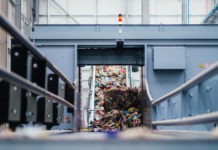
Earlier this year, in April, Amcor, a global manufacturer of packaging solutions with a strong presence in India, completed the construction of its advanced coating facility for healthcare packaging in Selangor, Malaysia. The first plant in Asia to leverage air-knife coating technology strengthens Amcor’s supply of high-quality, sterile packaging for healthcare customers across the region.
In an exclusive interview with Packaging South Asia, Virginie Maes, vice-president of Global Healthcare, and Laura Wong, APAC vice-president for healthcare, Amcor, spoke on the company’s plans for Asia and India, innovations in pharma packaging, global health regulations, supply-chain risks and counterfeiting challenges, and sustainability.
The Asia Pacific, including India, is a key growth region for Amcor, which is expanding its healthcare packaging capabilities to meet the rising demand, they said. Recent initiatives include the acquisition of MDK (Shanghai) Packaging Technology, a leading Chinese manufacturer of medical-grade flexible packaging, the establishment of a grid lacquer paper unit in India, and the construction of a co-extrusion blown film and printing plant in Singapore. Amcor has plants and offices across India, in Gujarat, Maharashtra, Tamil Nadu, Delhi, and Uttarakhand.
“These strategic investments reflect our commitment to localizing production, improving supply chain agility, and supporting the evolving needs of healthcare customers in high-growth markets such as India and South Asia,” Maes and Wong said.

Malaysia as a healthcare packaging hub
According to Maes and Wong, the coating unit in Selangor, Malaysia, is the first in Asia to feature air knife coating technology, enabling high-precision, uniform coating application that enhances product consistency while reducing material waste. It is also the first facility in Asia to produce both top and bottom substrates for medical device packaging within a single integrated campus, significantly improving supply chain resilience and turnaround time for our customers, they explained.
“We selected Malaysia due to its strategic location in Southeast Asia, its robust infrastructure, and supportive business environment. The country’s commitment to industrial development and healthcare sector growth made it an ideal choice for expanding our regional presence.”
Apart from location, Malaysia, they said, is becoming an important hub for healthcare packaging and medtech manufacturing in Asia because of its supportive policies and skilled workforce, which make it well-positioned to serve both regional and international markets.
“Our expanded presence in Selangor reinforces Malaysia’s role as a key contributor to the global healthcare supply chain, enabling us to deliver high-quality packaging solutions with greater speed, flexibility, and proximity to our customers.”
Safety and sterility
Packaging technologies have become all the more important to enhance safety and sterility in healthcare packaging, especially after the Covid-19 pandemic and other disease outbreaks. Healthcare systems rely heavily on sterile, reliable packaging to protect patients and ensure the integrity of medical products. The global sterile medical packaging market reflects this urgency, growing from US$ 29.13 billion in 2022 and projected to reach US$ 44.60 billion by 2029, they said, quoting a recent report.
“To meet these evolving needs, we equipped our facilities with technologies such as air knife coating, water-based coatings, and online inspection systems. These solutions enable greater precision, consistency, and protection; factors that are essential in packaging sterile medical devices and pharmaceuticals.”
In addition, Amcor is advancing the use of recyclable-ready packaging materials and working closely with a leading medical device manufacturer to help hospitals minimize plastic waste. These efforts align with the broader shift toward more sustainable healthcare practices without compromising product sterility.
These innovations are pivotal in strengthening the safety and resilience of the global healthcare supply chain, they said, adding, “By enhancing local production capabilities, we reduce lead times and bolster supply chain security, ensuring critical medical supplies reach healthcare providers promptly and safely.”

Counterfeiting challenge
Counterfeiting is a critical issue in the South Asian market, particularly in the pharmaceutical sector, which can directly impact the health and safety of thousands of families.
Keeping this in mind, Amcor developed a range of advanced packaging solutions to help customers address this challenge, Maes and Wong said. The portfolio includes technologies designed specifically to prevent counterfeiting and ensure product authenticity – including holographic features, relief patterns, hidden images, microtexts, and textures.
“Additionally, we introduced a more sustainable and recycle-ready mono-material PE blister packaging solution, AmSky. Its distinctive appearance not only supports environmental goals but serves as a unique anti-counterfeiting feature—which our customers have welcomed. We are collaborating with leading pharmaceutical companies across South Asia and are looking forward to bringing these innovations to market soon. By doing so, we aim to strengthen the integrity of the healthcare supply chain and help protect people’s health across the region.”
Sustainable innovations
Sustainability, they say, is a central pillar of Amcor’s business – committing to designing all its packaging to be recyclable, reusable or compostable, using 30% recycled materials by 2030, and collaborating with partners across the value chain to drive packaging circularity.
They said the company is focused on reducing the environmental impact of its operations and products, scaling recyclable and reusable packaging, and increasing the use of recycled content. “Our science-based emissions targets are validated by the Science Based Targets initiative, and we are improving energy efficiency, water use, and waste reduction across our facilities.”
Each year, the company invests over US$ 180 million in R&D to develop more circular packaging solutions without compromising performance.
Amcor’s sustainable solutions include the HealthCare Recycle-Ready Medical Laminates—mono-material polyethylene (PE) packaging designed to replace traditional non-recyclable laminates in 3D thermoformed packs and 2D pouches. These enable easier recycling in hospital settings while maintaining critical performance standards, and align with circular economy goals. “We also launched in February new, recycle-ready high-shield medical laminates for a range of devices, including diagnostic sensors, catheters, and wound care.”
Another breakthrough is the Amcor HealthCare AmSky Blister System, a vinyl- and aluminum-free blister made entirely from PE. Designed to be compatible with rigid and flexible recycling streams, AmSky significantly reduces carbon footprint, supports child-resistant and senior-friendly use, and runs on existing packaging lines with minimal adjustment.
“Complementing these product innovations are advancements in our manufacturing capabilities, such as Asia’s first air knife coating facility in Malaysia, which ensures consistent coating with less waste. We’ve also developed water-based coatings and integrated inspection systems to support safer, more efficient, and environmentally responsible production.”
Impact of health regulations on medical packaging
Global health regulations significantly shape the way medical packaging is designed, validated, and manufactured, ensuring medical devices are delivered safely and effectively to patients. Standards such as ISO 11607, US FDA requirements, and the EU Medical Device Regulation establish stringent criteria for maintaining sterility, barrier performance, and traceability.
Adhering to these global health regulations necessitates that medical packaging maintains sterility, ensures integrity against environmental factors, facilitates traceability through clear labeling, and complies with validation requirements through rigorous testing. Such compliance is not only a legal obligation but a critical component in ensuring patient safety and maintaining trust in medical devices, Maes and Wong explained.
Amcor, Maes and Wong said, engineers its healthcare packaging solutions to comply with or exceed these global benchmarks, ensuring consistent product quality and regulatory readiness for customers in every market.
While India and Southeast Asia are aligning with international standards, the pace of regulatory maturity and enforcement varies compared to Western markets.
In India, medical devices are governed by the Medical Devices Rules, 2017, which were most recently updated through the Medical Devices (Amendment) Rules, 2020. These updates expanded the scope of regulated devices and introduced a risk-based classification system, but implementation timelines and enforcement practices continue to evolve, they said.
“In Southeast Asia, the ASEAN Medical Device Directive (AMDD) serves as a regional framework, but adoption and consistency vary by country. By contrast, markets such as the United States and the European Union typically operate under more mature, harmonized systems with well-established approval pathways. Amcor leverages its global expertise and local market knowledge to help customers navigate these regional differences and maintain compliance across jurisdictions,” Maes and Wong said.










